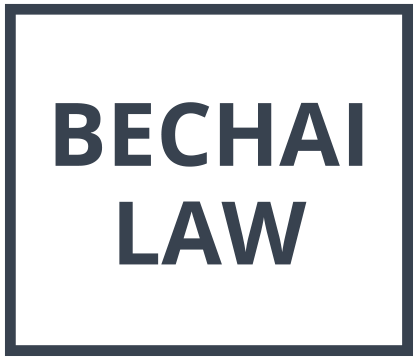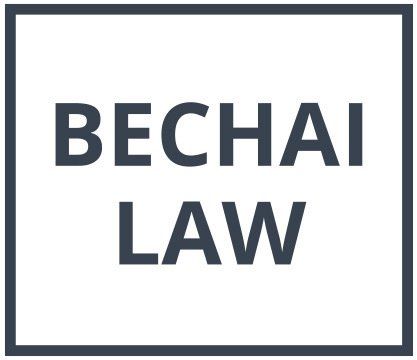Mortgage Financing Assistance
Proper estate planning is critical when being added to title of someone else's property
This post is part 2 in our series on “inter vivos” gifts. While strictly speaking, there is no gift in the scenario examined here, the strategy employed is commonly seen as a manner by which family members (usually older generations) are financially assisting younger generations. It therefore forms part of the discussion on the intergenerational transfer of wealth.
Recall our family from part 1 in this series: Bruce and Moira have three adult children, Charles, Jennifer and Heather. Charles and Jennifer have steady jobs, and each owns a home in which they live with their families. Heather is single and wishes to purchase a condo.
Let’s assume this time that Bruce has passed away, leaving mom – Moira – and the three adult children. Heather now has sufficient funds to put towards the down payment for the purchase of her condo. However, Heather’s income falls short of being approved for mortgage financing.
Heather and mom, Moira, decide to do what many buyers in today’s market do to overcome this hurdle: Moira agrees to be added to Heather’s mortgage application and, as many lenders require, she is correspondingly added to title of Heather’s condo. Let’s assume that Moira takes only a nominal interest in the property, say 1%. Therefore, Heather legally owns 99% of the property while her mother legally owns 1%.
Moira and Heather decide to go one step further to clarify their intentions behind this ownership structure. They sign documents stating that Jennifer alone has made the down payment, that she will make all mortgage payments and that she alone will fully cover all expenses relating to the condo. The parties acknowledge that Moira was listed on title simply to facilitate the purchase of the condo and that really, the condo belongs to Heather.
This strategy is a common one – it helps family members enter the real estate market when they would otherwise be unable to. However, whenever implementing financing and legal strategies, it is important to appreciate that they bear some risk. In this scenario, consider the following:
1. The 1% owner becomes incapable. What happens if Moira is mentally incapable when Jennifer decides to sell the condo? If Moira is still on title, Heather will need someone with legal authority to consent to the sale on Moira’s behalf. Did Moira have a Power of Attorney for Property? Is the person she appointed someone who will work with Heather? If Moira does not have a Power of Attorney for Property, Heather will be unable to sell the condo until someone applies to the court and is appointed the legal guardian for Moira’s property. That process takes time and is costly, not to mention that it leaves room for disagreements among family members.
2. The 1% owner dies…without a Will. When someone dies without a Will, the Estates Act (Ontario) sets out who can apply to become Executor of the estate, and the Succession Law Reform Act (Ontario) determines who inherits from the deceased’s estate.
In our fictional family, Charles, Jennifer and Heather would all rank equally to apply for the role of Executor, and all three would be entitled to share equally in Moira’s estate. If everyone gets along, hopefully everyone agrees about who should become Executor. Otherwise, there could be significant delays in getting Heather full title to her condo.
Furthermore, let’s hope everyone accepts the documentation that Heather and Moira signed about the “true” ownership structure. Sadly, I have seen cases where the documents do not go far enough to indicate what is to occur to title on the death of a party. This leaves open the argument that the 1% interest is in fact shared by the beneficiaries of the estate, i.e. Charles, Jennifer and Heather. Note also that without proper estate planning, Moira’s 1% legal interest in Heather’s condo will likely increase probate fees payable by her estate.
If Moira had a Will, she could appoint an Executor which would help expedite matters and avoid the possibility for disagreements among the children. Furthermore, her Will could make a clear declaration of intention to bolster the documentation signed with Heather, explicitly stating that the 1% interest in Heather’s condo does not form part of her estate. Finally, there may also be opportunities to reduce probate fees payable by Moira’s estate on her 1% interest in the condo.
3. The 99% owner dies or becomes incapable…and the lenders need to be paid. No doubt, the lenders have required Heather and Moira to be jointly and severally liable for the mortgage payments. That means that if, for example, Heather dies before Moira, Moira is fully responsible for the mortgage payments until such time as the condo is sold. Is Moira in a financial position to make the payments in such a case? At what cost to her? Is it recorded anywhere whether Moira will be reimbursed for covering these payments: will she be reimbursed as to 100% or 99% of the expenses she paid, if at all? When the condo is sold, is it clear whether Moira will obtain 1% of the net sale proceeds, or nothing at all? No doubt the beneficiaries of Heather’s estate will be paying close attention as to what Heather and Moira explicitly agreed to, and what was not sufficiently stated. If Heather has a detailed Will, it would help answer these questions.
If you have someone else on title to your home or you have been added to title to someone else’s property, consider having conversations with your fellow titleholders about their estate plan. Planning for death and incapacity helps minimize the risk of family discord in future, not to mention the corresponding costs incurred to resolve such disputes.



